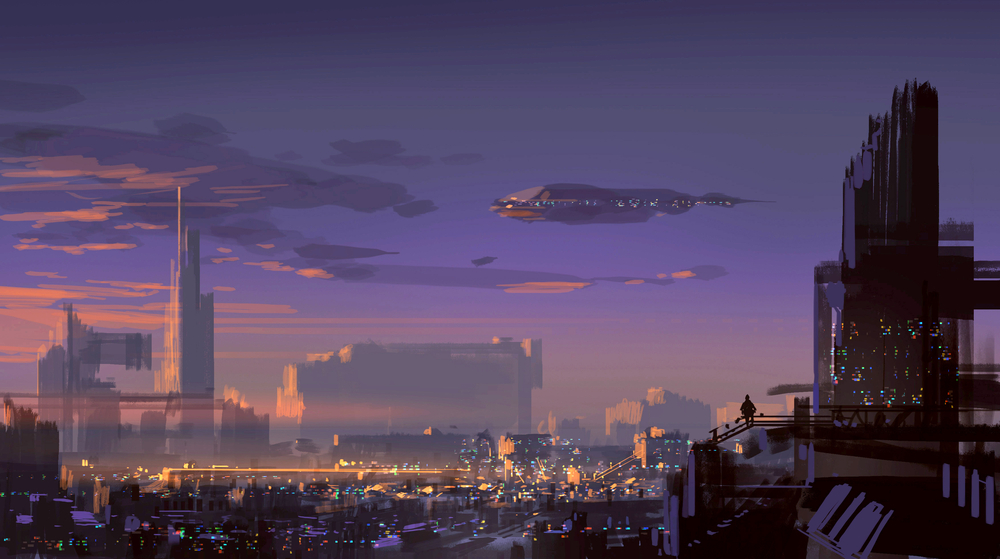Formula For The Future
GE Look Ahead |

Dr Parag Khanna Senior Fellow, Lee Kuan Yew School, National University of Singapore
"… engineers will be hard at work transplanting sinking districts of our many coastal mega-cities both further inland and on to floating mega-structures."
Both subsidence and rising sea levels already threaten the utility of entire urban habitats. Thus, in 2050, engineers will be hard at work transplanting sinking districts of our many coastal mega-cities both further inland and on to floating mega-structures.
As temperature rise will require ever more of the world’s population to move into the northern latitudes dominated by Russia and Canada, a huge colonisation programme will be underway to build new frontier cities and fully mechanise the agriculture of these previously uninhabited regions.
At the same time, supply-chain infrastructures will have reached a nearly maximum extent, efficiently extracting raw materials from the Sahara to Antarctica to feed the advanced manufacturing devices and industries that locally print most essential goods.
Michael Liebhold Senior Researcher, Distinguished Fellow, Institute for the Future
"Engineers will gradually overcome challenges of multidisciplinary design and uses of powerful combinatorial palettes to create robotic systems…"
By 2050, scientists will begin to master combined uses of molecular biology, nano-engineering and robotics (researchers like Dr Ian F. Akyildiz are already designing networks for coordinating bionanobots).
Engineers will gradually overcome challenges of multidisciplinary design and uses of powerful combinatorial palettes to create robotic systems that can influence biological processes at cellular levels—leading to new organisms, materials and ways to fight diseases, including cancer.
Current debate over gene editing (eg CRISPR) indicates immense upside implications for humans and environments as well as inadvertent consequences such as destructive mutations. Reducing these risks demands that we begin planning carefully now.
Professor Bruce McKern Oxford University and the China Europe International Business School
"The problems mankind will face in 2050 will be characterised by complexity and interconnectedness."
The problems mankind will face in 2050 will be characterised by complexity and interconnectedness. Their solution will depend on the particular qualities that already make engineers essential today: their ability to devise practical answers in an imperfect world.
Engineers will fuse ideas and experience from a great variety of disciplines—principles based in science and art, further complemented by logic and rigour—to find economic and durable solutions.
This systemic approach, coupled with imagination and daring, will be the key to success in the future—as it has for all of the great engineering achievements in human history.
Greg Lindsay Senior Fellow, Atlantic Council’s Strategic Foresight Initiative
"The greatest challenge for engineers will be developing and deploying more resilient solutions at scale…."
Call me a pessimist, but I believe engineers will be in a race against time and climate change to replace destroyed and failing 20th-century infrastructure—roads, power lines, pipelines, etc—with new technologies, materials and networks out of necessity.
Hurricane Sandy in 2012 not only exposed the weaknesses of America’s coastal infrastructure, but also the inability of local governments to afford replacements in the face of increasingly frequent storms. Meanwhile, the back-to-back-to-back typhoons Pablo, Yolanda and Glenda in the Philippines exposed just how difficult it will be for developing nations to physically rebuild ahead of the next storm.
The greatest challenge for engineers will be developing and deploying more resilient solutions at scale, whether that be solar micro-grids, new transportation alternatives and, (hopefully), cheap, transformative infrastructure that hasn’t been invented yet.
Joseph Salvo Director of the Industrial Internet Consortium, GE Global Research
"Cognitive systems—networked, ubiquitous artificial intelligence—will be in full implementation."
In 2050, the challenges engineers will be focusing on will be pretty straight-forward. If you look at the projection of Moore’s Law and don’t limit us to traditional von Neumann computing architectures, you can assume there will be about 25 doublings in the price-performance of computing by then.
This means 8m times more computing power for the money than today. Cognitive systems—networked, ubiquitous artificial intelligence—will be fully implemented. Engineers will be building systems that integrate with cognitive systems, which process enormous amounts of data and interact with people and machines in real time.
We, as humans, will find ourselves evolving rapidly with these cognitive systems, addressing our most urgent problems, including climate, environment and cultural issues.